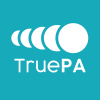Karlsruhe Institute of Technology

Karlsruhe Institute of Technology (KIT) is “The Research University in the Helmholtz Association.” As one of the biggest science institutions in Europe, the only German University of Excellence with national large-scale research facilities combines a long university tradition with program-oriented top-level research. Combining experiment and theory, the researchers at the Institute for Quantum Materials and Technologies (IQMT) at KIT seek to understand quantum phenomena in condensed matter and molecular systems, and to develop novel devices based on these effects that will serve as building blocks for future quantum technologies.
Group of Prof. Anja Metelmann (Theory) | Group of Prof. Ioan M. Pop (Experiments)
Austrian Academy of Sciences (OEAW)


The Institute for Quantum Optics and Quantum Information (IQOQI) of the Austrian Academy of Sciences dedicates its work to theoretical and experimental basic research in the areas of quantum optics and quantum information science. Research topics range from the foundations of quantum physics to their applications, for example for metrology, sensor technology and quantum information processing. Internationality, worldwide networking and highly actual research topics characterize the institute's work which aims at conducting independent top-notch research. The institute's personnel and infrastructure is closely connected with the University of Innsbruck and contributes strongly to the education of doctoral and master students. A particular concern of the institute is the sustainable advancement of young academics, and together with the University of Innsbruck, their integration into the research and teaching program.
CNRS - Institut Néel

Institut Néel is a fundamental research laboratory in condensed matter physics, with a strong interdisciplinary component at the interfaces with chemistry, engineering and biology. Institut Néel possesses technological expertise of the highest level that is strongly intertwined with research projects.
CNR - SPIN Institute

SPIN Institute is part of the National Research Council (CNR), which is the largest public organisation pursuing research and innovation in Italy. The mission of SPIN is the study of superconductors and innovative materials and their application in the fields of energy, electronics and quantum science and technologies. SPIN, in fact, is an evocative name and acronym for SuPerconductors, oxides and other INnovative materials and devices.
Low Noise Factory

Low Noise Factory (LNF) designs and produces the world’s best low noise microwave amplifiers. These amplifiers are used at cryogenic temperatures for space exploration, quantum computing, radio astronomy, and for various ground-breaking scientific endeavours where extreme sensitivity is paramount. LNF is a Swedish company established in 2005, located in Göteborg, with in-house development and manufacturing of off-the-shelfand custom microwave products such as low noise amplifiers (LNAs), circulator/isolators, LNA power supplies, and variable temperature waveguide noise sources.
Physikalisch-Technische Bundesanstalt

The Physikalisch-Technische Bundesanstalt (PTB) is the national metrology institute of the Federal Republic of Germany with scientific and technical service tasks. It furthers progress and reliability in metrology for society, the economy and science.
Silent Waves

Silent Waves is a French startup that has spun-out from the Institut Néel, a CNRS’s laboratory based in Grenoble, France. Launched in 2022, its mission is to provide the best solution for very low power microwave signal readout for the fields of quantum information and quantum computing.

